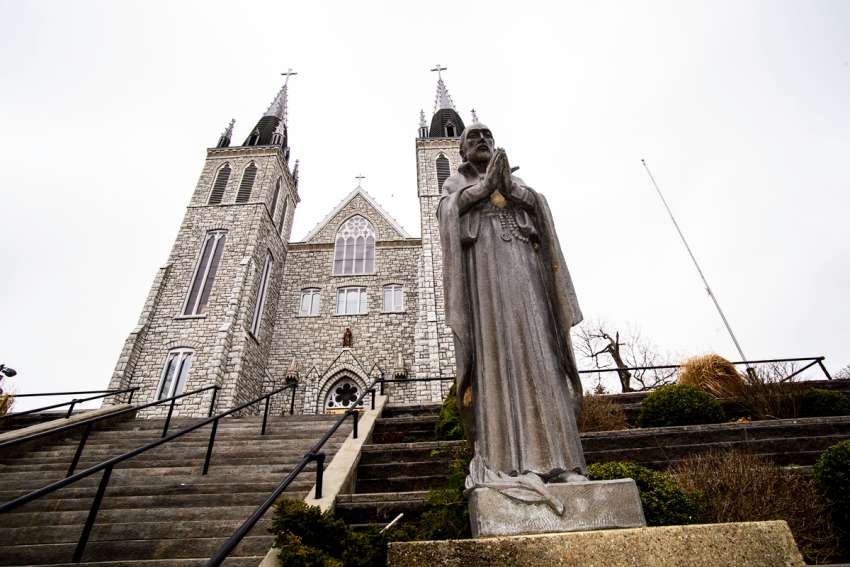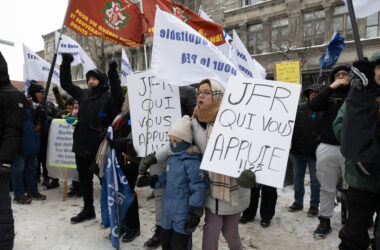On March 13, the Jesuits of Canada, a religious order of the Catholic Church, released a list of priests and brothers that have been “credibly accused” of sexually abusing minors. The list dates back to the 1950s, accounting for more than 27 accused men, 24 of whom are deceased. Several of the men listed worked for a period of time in Montreal, in institutions such as Loyola High School and Collège Jean de Brébeuf. This repeated pattern of abuse, which is far from unique to Canada, within the Catholic spiritual community and system of worship creates ripples of abuse that continue to permeate the lives of many, especially those assaulted as children. Growing up in the Catholic Church and attending a Catholic high school, priests were presented to me as all-knowing figures of guidance, making it that much easier for them to prey on those who follow. In order to continue to fight against sexual assault in sacred spaces, there needs to be a continuous effort to eliminate abuse and larger monetary reparations to those who have been harmed in the past.
In December 2019, the Jesuits of Canada began compiling an audit of all cases of abuse and boundary violations, pledging to release a list of those credibly accused to the general public. The term “credibly accused” refers to a situation where there is enough evidence to legitimize allegations, but not necessarily enough to prove guilt beyond a reasonable doubt. These efforts can be validating to survivors; seeing the name of their abuser called out for their crime can at times provide peace of mind. The list is meant to be a living document as ongoing investigations into abuse continue. The Jesuits have further pushed for efforts of reconciliation by establishing guidelines for healing, accountability, and prevention of future acts of abuse and sexual harassment. Additionally, every Jesuit candidate must partake in a psychological evaluation to ensure they are fit to become a Jesuit, as well as yearly training on abuse prevention and celibate living.
While these efforts certainly take steps in the right direction, the church must do more to eradicate sexual violence within its sacred spaces. In France, cash reparations ranged from $21,128 to $63,386 per individual case. Another potential measure, albeit controversial, should be the removal of mandatory celibacy from the Catholic priesthood. Though the pressures of celibacy should never be granted as a legitimate excuse for pedophilic abuse, abolishing this measure could modernize the church and create a safer environment for all.
The statement issued by the Jesuits of Canada asserts that the past cannot be rewritten, but this reveals calculated accountability on the Church’s part. With many accused priests and brothers deceased, little judicial action can occur against specific perpetrators. The lack of criminal proceedings allows them to get off scot-free, condemned for their actions only beyond the grave. The Jesuits’ involvement in the creation and perpetuation of residential schools across Canada, for example, has not been adequately redressed. Ten of the 27 men on the list abused minors in residential schools in First Nations communities and in Spanish, Ontario. While minor reparations have been paid, the government must begin to take larger steps to support Indigenous peoples in Canada, especially survivors, and that begins with greater transparency about the past, such as in the Catholic Church’s recent repudiation of the Doctrine of Discovery.
We must ask the essential question—did the Church know all along, and keep it under wraps while the priests were still practicing? There exists a long history of secrecy within the Church, with information only being revealed when convenient, as seen in the recent exposé on active conversion therapy practices in Montreal churches. The Jesuits of Canada must reveal more names, for if the priests still living fit into the pattern, abusers still exist within the system and will perpetuate this cycle until exposed.
The Church must continue to be held accountable, starting with reparations for the past and proactive steps toward safeguarding the dignity of its followers in the future. For an institution as old as the Catholic Church, a reckoning is long overdue.








